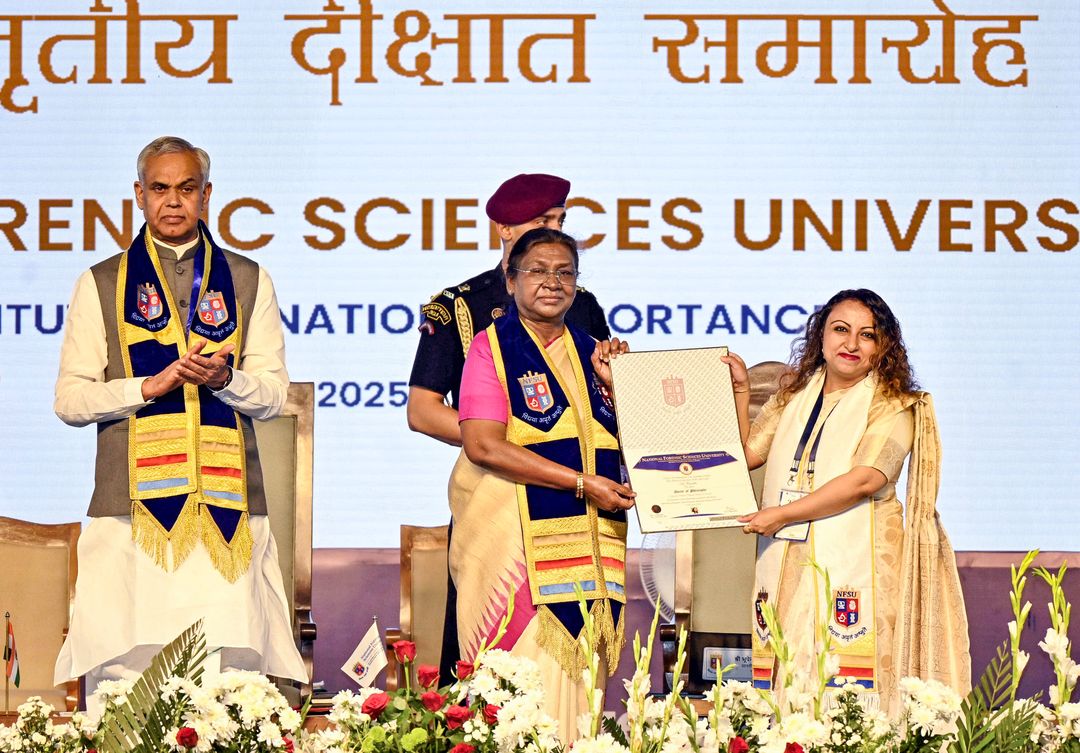
Gandhinagar, February 28 – President Droupadi Murmu emphasized that a strong justice system is one where criminals fear punishment and citizens trust in fair legal proceedings. She described the introduction of three new criminal laws in 2024 as a landmark moment in India's judicial history. The President was speaking at the third convocation of the National Forensic Sciences University (NFSU) in Gandhinagar, where Gujarat Governor Acharya Devvrat and Chief Minister Bhupendra Patel were also present.
Highlighting the essence of good governance, Murmu stated, “Control of crime, fear among criminals of being caught and punished, and trust of common people in getting justice is the identity of good governance. In our country, a social system based on justice is considered the best.” She urged the graduating students of NFSU to ensure justice remains accessible to all, especially to those from weaker financial backgrounds.
Significance of Judicial Reforms and New Criminal Laws
The President highlighted the significance of the three newly introduced laws—Bharatiya Nyaya Sanhita, Bharatiya Nagarik Suraksha Sanhita, and Bharatiya Sakshya Adhiniyam—which replaced colonial-era legislations. She described this transition as a “watershed moment” for India's criminal justice system, as these laws, effective from July 1, 2024, introduce critical reforms in crime investigation and evidence collection.Murmu noted that forensic involvement has become mandatory for cases where the punishment exceeds seven years. Additionally, the Bharatiya Nagarik Suraksha Sanhita ensures the development of forensic facilities across states within a specific timeframe. Time-bound forensic examinations have also been made compulsory in several legal provisions.
The Growing Role of Forensics in Crime Control
With technological advancements, including digital tools and Artificial Intelligence, forensic experts play an increasingly vital role in crime investigations. However, Murmu pointed out that criminals are also evolving their tactics. “People associated with our policing, prosecution, and criminal justice delivery system can successfully control crime only if they remain smarter, more prompt, and alert than criminals,” she asserted.Expressing confidence in NFSU’s contribution, she stated that a well-established forensic system would strengthen the conviction rate and serve as a deterrent to crime. Over 1,560 students were conferred degrees at the convocation, including 70 international students from five countries.
Murmu’s address reinforced the importance of integrating forensic science with judicial reforms to ensure a more robust and inclusive justice system in India.